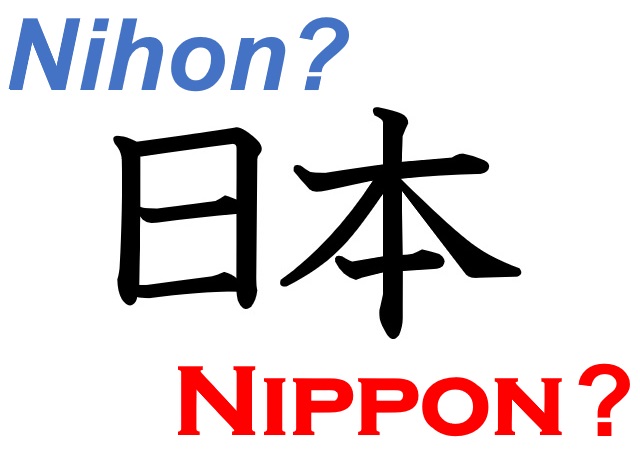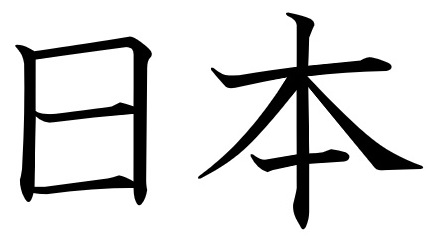Nihon? Nippon? What’s the correct name for “Japan” at the Tokyo Olympics (and in general)?

Japan, the country so nice they named it twice?
During the Parade of Nations of the Tokyo Olympics’ opening ceremony, the athletes entered the stadium as the P.A, system said their country’s name first in French, then in English, and finally in Japanese. So when the host country’s team made its appearance, the speakers rang out with “Japon! Japan! Nihon!”, which, of course, translates to “Japan! Japan! Japan!”
And yet, a number of people in Japan were confused, because even though Nihon means “Japan,” it’s not the only way to say the country’s name in the local language. “I think the stadium announcer made a mistake,” said news commentator Tatsuyuki Takaoka the following morning on talk show Asapara S, where former volleyball player Junichi Kawai said he too was surprised.
So what did they think the stadium announcer should have said? Nippon. “That’s what we were always called back in my day,” said Kawai. Even the announcers for public broadcaster NHK, which was televising the event, called the arriving team “Nippon” immediately after the stadium announcer introduced them as “Nihon.”
So which is the correct way to say “Japan?” Both of them. Yes, as strange as is it may seem, there are two ways to say “Japan” in Japanese: Nihon and Nippon. Making the while thing even more confusing is that, in Japanese, Nihon and Nippon are written exactly the same way.
▼ Nihon

▼ Nippon (and no, there’s no tiny difference like the one between these two parts of Japanese writing)

In Japanese, syllables starting with an H and those starting with a P are linguistically linked, and it’s not uncommon for an H to become a P for a mid-word syllable. When that happens, though, the H pronunciation is usually no longer acceptable, but Nihon/Nippon is a rare exception where both are simultaneously allowed and understood.
What’s more, unlike, say, United States of America/America, where one is the official name of the country and the other a less formal abbreviated version, both Nihon and Nippon are equally valid. Even within the Japanese government you can find examples of both versions. For example, in Japanese The Bank of Japan is Nippon Ginko (日本銀行), while the Constitution of Japan is the Nihon Koku Kempo (日本国憲法). Speaking of the Bank of Japan, it’s in a section of Tokyo called Nihonbashi (日本橋), which means “Bridge of Japan,” but is not to be confused with Nipponbashi (日本橋), the identically written neighborhood in Osaka which also means “Bridge of Japan.”
So if both Nihon and Nippon mean “Japan,” why were Takaoka, Kawai, and some others insistent that Team Japan should have been introduced as “Nippon” in Japanese? Probably because between the two, Nippon has a more old-school, patriotic sound to it than Nihon, which likely has something to do with the more forceful and staccato sound of Nippon’s “pp” versus Nihon’s “h.” Basically, “Nippon” sounds tougher than “Nihon,” and so it’s a common choice when talking about Japan in international sporting competitions, which in the Japanese media are often framed as Japan taking on the rest of the world. For similar reasons, Nippon’s strong image also makes it a common pick by politicians appealing to traditional Japanese societal values in their speeches and other rhetoric, as well as in discussions of classical Japanese culture.
▼ Another example of Nippon being the “tough” name for the country: Japan’s judo team has “Nippon” on their uniforms.
A first #Olympic #gold for Japan!
— Olympics (@Olympics) July 24, 2021
Takato Naohisa wins the the #judo men’s -60 kg event in #Tokyo2020 after taking #bronze in Rio 2016.#StrongerTogether | @tokyo2020 | @Judo pic.twitter.com/FpP2ZFfkYf
Nippon also has an advantage in the context of sports in that its popping sound makes it better suited for group cheers, which is why “Gambare, Nippon!”, or “Let’s go Japan,” is the go-to chant among supporters of Japan’s national sports teams. But Nihon is by no means incorrect when talking about Japanese sports, and Japanese Twitter users themselves were split on/confused by the debate over the choice of vocabulary during the opening ceremony, with comments such as:
“Someday, I’d really like for us to pick just one name for the country.”
“Nihon, Nippon, either one is fine by me.”
“They’re both correct.”
“Japon! Japan! Nihon! Nippon!”
“It’s fine if people just say whichever one is easier for them. They’re both written the same way after all.”
So if you’re a budding linguist who’s learning Japanese, which should you use? When you’re in a quandary, “Nihon” is always a safe choice. While “Nippon” can give your speaking an extra dash of colorful emphasis that you’re talking about “JAPAN!”, it can also come off as a little overdramatic. It’s also worth getting accustomed to using “Nihon” as your mental default when forming compound terms. For example, while both Nihonjin and Nipponjin can be used to say “Japanese person,” when talking about the Japanese language, the phrase is always Nihongo, not Nippongo.
That said, if you’ve got a Japanese friend and you want to let them know you’re cheering for the home team at the Tokyo Olympics, giving them a “Gambare Nippon!” might give them a smile too.
Sources: Sponichi Annex via Yahoo! Japan News via Jin, Twitter
Images ©SoraNews24
● Want to hear about SoraNews24’s latest articles as soon as they’re published? Follow us on Facebook and Twitter!
Credit:

0 comments:
Post a Comment